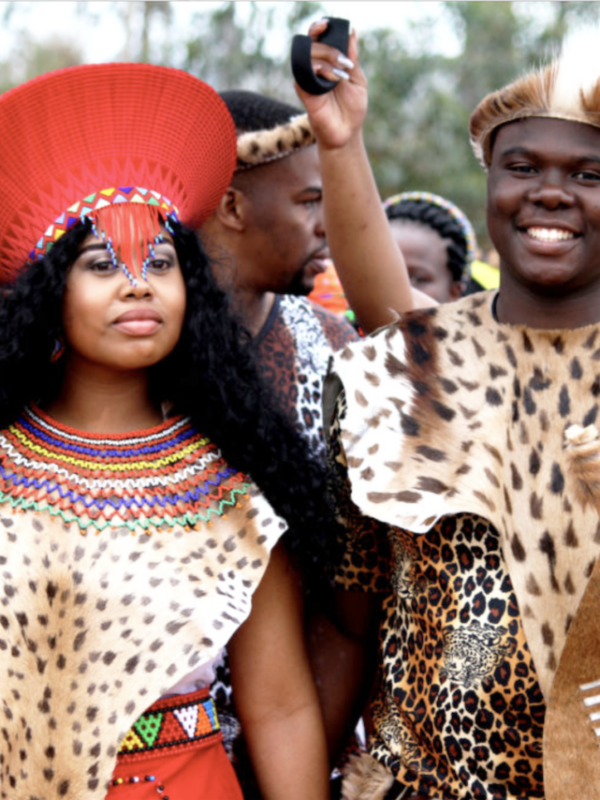Here are some of the key elements of a traditional South African wedding:
- The Lobola Negotiations: In many South African cultures, the groom’s family must negotiate the bride price (known as lobola) with the bride’s family before the wedding can take place. This negotiation is a serious and often emotional process, but it is also an opportunity for the two families to get to know each other and build a bond.
- The Traditional Attire: South African traditional weddings are characterized by their colorful and elaborate traditional attire. Women often wear brightly colored dresses and headdresses, while men wear traditional garb that includes shields, shields, and feathers.
- The Procession: In many South African cultures, the bride and groom are accompanied by their families and friends on their journey to the wedding venue. This procession is often accompanied by music and singing, and is a time for the community to come together and celebrate the union of the couple.
- The Ceremony: The traditional South African wedding ceremony is steeped in symbolism and tradition. It is often led by a sangoma (traditional healer), and involves prayers, songs, and rituals designed to bring good luck and prosperity to the couple.
- The Reception: After the ceremony, the celebrations continue with a reception that is often a lively and joyous affair. Traditional South African music and dance are an integral part of the reception, and guests are encouraged to join in and have fun.
Whether you’re a local or a visitor, attending a traditional South African wedding is a truly unforgettable experience. With their vibrant colors, joyful music, and deep cultural roots, these celebrations offer a unique window into the rich and diverse world of South African culture.
 AdvenTour!
AdvenTour! 